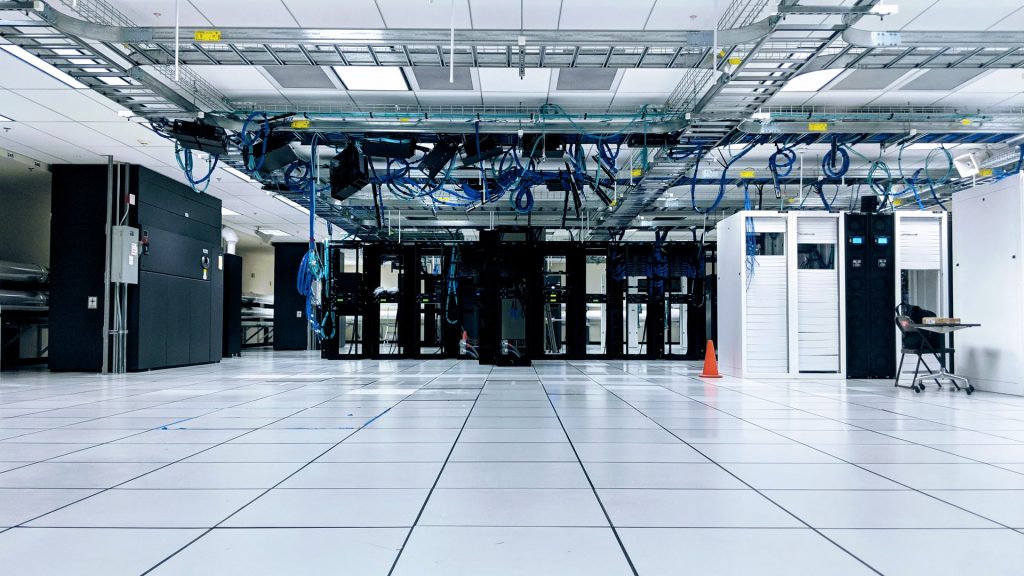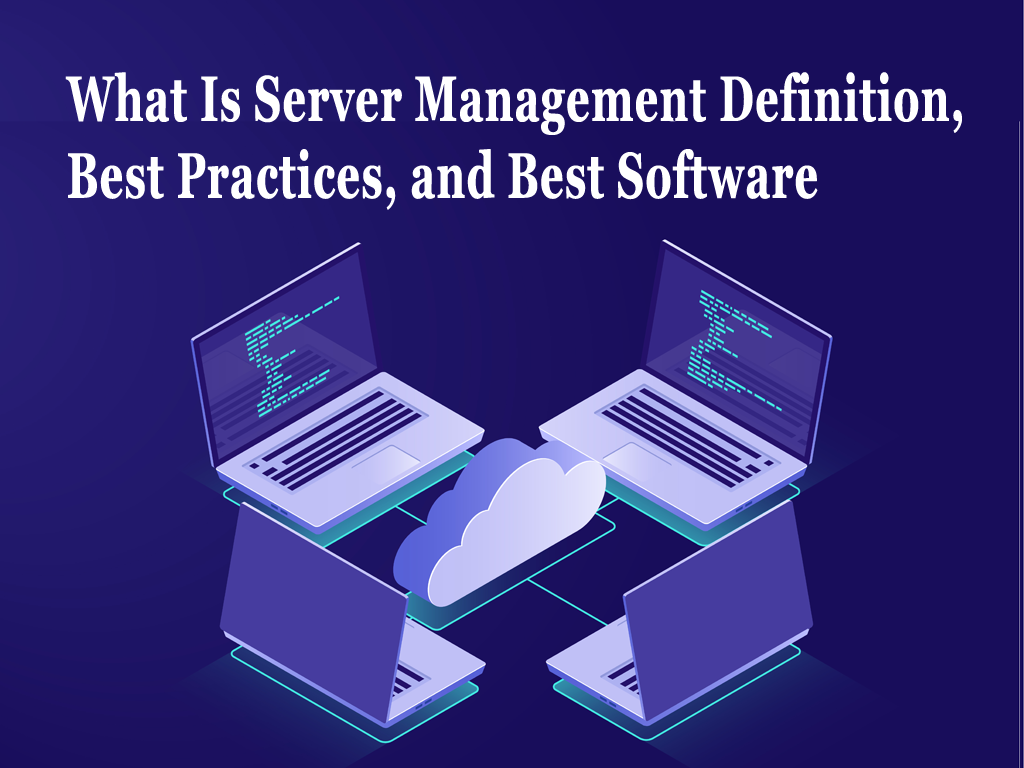What is Server Management?
Server management is the process of maintaining servers in order to make them perform at their optimum level. It also includes monitoring of the hardware, applications, software, security, and data backup.
Types of Servers
-
- FTP Servers: These servers handle to-and-fro data transfer between a server and devices.
-
- Web Servers: Web servers are responsible for hosting and storing the code, data, content, images, etc. of your website.
-
- Virtual Servers: Virtual server is an arrangement in which multiple servers are hosted on a single piece of hardware instead of a traditional server where one server is hosted on one physical server space. This enables in optimization of the physical resources.
-
- Proxy Server: These servers initiate and manage a relationship between a client and an external server.
-
- Database Servers: These servers are responsible for the management of an organization’s databases.
-
- Application Servers: These are servers used to store web applications and plug-ins used by users.
Aspects of Server Management
Hardware :
Hardware is the foundation on which software is used and a website built. Without having a robust hardware infrastructure with proper management, even the best software will face issues. Some of the hardware components are:

CPU:
One needs to constantly monitor that the CPU is not having constant 100 % utilization or there would be no room to perform additional tasks. In such a case, website performance will go down. If the CPU is overworked, you should add additional capacity to it. Simultaneously, you have to also ensure that the CPU is not underused. You need to ensure optimum performance for your processor which will reflect in a website that runs efficiently.
You need to also constantly monitor its temperature. Servers generate a lot of heat. If the temperature reaches above a threshold level, shut it down immediately and solve the problem. You can add a cooling fan to the server also.
RAM:
The better RAM you will have, the better your website will run. But too much extra RAM which is more than needed will be heavy for your budget. You need to ensure optimum utilization.
It is your system’s working memory. If your website involves running heavy algorithms at a time, you need to have a heavy RAM
If the RAM capacity is always underutilized, you are paying higher than your requirement and need to make changes to your plan
Disk Space:
This is the space where your databases and backups will be stored.
- You need to keep cleaning it periodically to ensure smooth functioning. Delete the old unnecessary files.
- You also need to frequently scan it for viruses or any malicious file that may have entered.
- If a hard disk is constantly using its maximum capacity, then it will degrade your performance. You need to ensure the perfect utilization of your hardware resources.
Software :
Good hardware is useless without equally good software. Like hardware, the software also needs constant monitoring and maintenance
Software needs to be regularly updated and scanned. Software developers constantly update their code to remove any bugs and vulnerabilities. If you are not updating, such discrepancies will never get fixed at
your end and reduce your efficiency. Some aspects of software management are-:
Operating System:
One of the most important aspects of the server is the operating system that is being used. Operating system requirements vary from business to business
- Linux Operating System is an open-source platform and is considered the most economical and secures Operating System.
- Windows Operating System is only recommended when the business needs specific applications that only run on Windows. In many cases, they charge for licensing which makes them expensive.
Security :
- Always keep up-to-date antivirus software to avoid any vulnerability. Hackers continuously update their codes to breach any vulnerability.
- Use a firewall to stop unauthorized access
- Have complex passwords with special characters, numbers, capital, and small letters; constantly keep changing those passwords have limited users on the server so that activity on the server is traceable and easy to monitor.
- Employees should have the bare minimum access and permissions that is enough for them to perform their job. Not every employee should have the access to the root directory of your server.
- The data should be kept encrypted
- Security needs special attention in case your data involves financial transactions or other confidential information.
Backups:
- You need to have a robust backup strategy so you are prepared for any unforeseen circumstance.
- You need to decide whether you want to have an in-house physical backup infrastructure or a cloud backup.
- Provide limited access to the backup and limited permissions to edit
- You need to decide on how much backup you want. This will help you in finalizing the budget for the backup.
- Regularly keep scanning the backup to avoid any malicious data
- Decide on whether if you have the technical expertise to manage the backup yourself or you want a managed backup plan where the service provider will handle the backup for you.
- Select the backup software that is optimum for your company’s requirements.
- Speed of the backup is also a very important factor. If the system takes too much time to restore your data, you might lose potential customers and also make existing customers unhappy. Always optimize your RTO(Recovery Time Objectives) and RPO (Recovery Point Objective).
- Another aspect is the frequency of your backup. You need to decide whether you want a weekly update, daily update, hourly update, etc. This will depend on the nature of your business.
Cost of Software:
You need to check the renewal costs of the software. Some companies provide a cheap initial plan but have a high charge for renewal. Since migration gets difficult, the company tends to renew its plan.
You also need to take care of the hidden costs. Many companies that provide extremely cheap service options don’t include a lot of necessary services which you have to buy later. So, you should focus on features also that come with the cost.
Also read, A Brief Guide to Understand Dedicated Server Hosting
User-Interface:
Most of the tasks of server management will be conducted on a terminal. Terminals also come with visualization capabilities to enable you to perform advanced tasks.
E.g. For reseller web hosting, cPanel enables the reseller to easily manage the third party accounts, customized plans, billing, documentation, etc. without giving away the original hosting provider’s name

Support:
You need to have a clear idea of what kind of support your server will need. If you are a very small-scale business with limited traffic on your website, limited support will be optimum for you because it will be light on your budget. But if you are a big corporation with heavy traffic, you will need 24*7 support because, in the event of your website going down, you will lose business.
Some service providers also provide an option of employee training where all the management is done in-house in your company. In case you are dealing with data of confidential nature, this might be a good option for you.
Alerts:
You need to set alerts to ensure robust monitoring. You can have email, SMS, or other such alerts that could be triggered by various benchmarks such as heavy traffic, disk capacity usage, etc. Such triggers will allow you to see patterns of your website’s performance and work on your business plan accordingly.
Server Management Services
Server management services will allow you to outsource the management of your server. The services offered vary from server to server.
E.g. Hardware server management might involve a completely managed service with 24*7 support, where the service provider is responsible for the physical maintenance of the server.
One of the most important tasks in server management is choosing a vendor. Companies have diversified strategies and buy different services with different vendors to optimize their business.
You should ask for quotations from all prospective vendors and compare them on the following points-
- Final cost after implementation. This should also include all hidden costs, renewal costs, etc.
- Features, customization options, and all other deliverables that are included in the quotation
- The expected timeline of the implementation of the services.
- The migration cost of moving from one earlier vendor to a new vendor
- Support system, employee training, etc. or any service that the server management company will provide
- Scalability options that the company provides. Suppose your traffic is growing and you want to increase your server capacity, then you need to know beforehand what will be the cost for that. Or in case some feature seems a burden on your wallet, then how easily can you remove that feature.
Conclusion
There are a plethora of server management services available. What service suits you will depend upon your business needs and requirement. Having clear know-how of the above factors will be mutually beneficial for both you and your service provider as it will not only help you to negotiate better with your service provider but also enable them to provide you with plans that eventually benefit you.
 Register
Register

